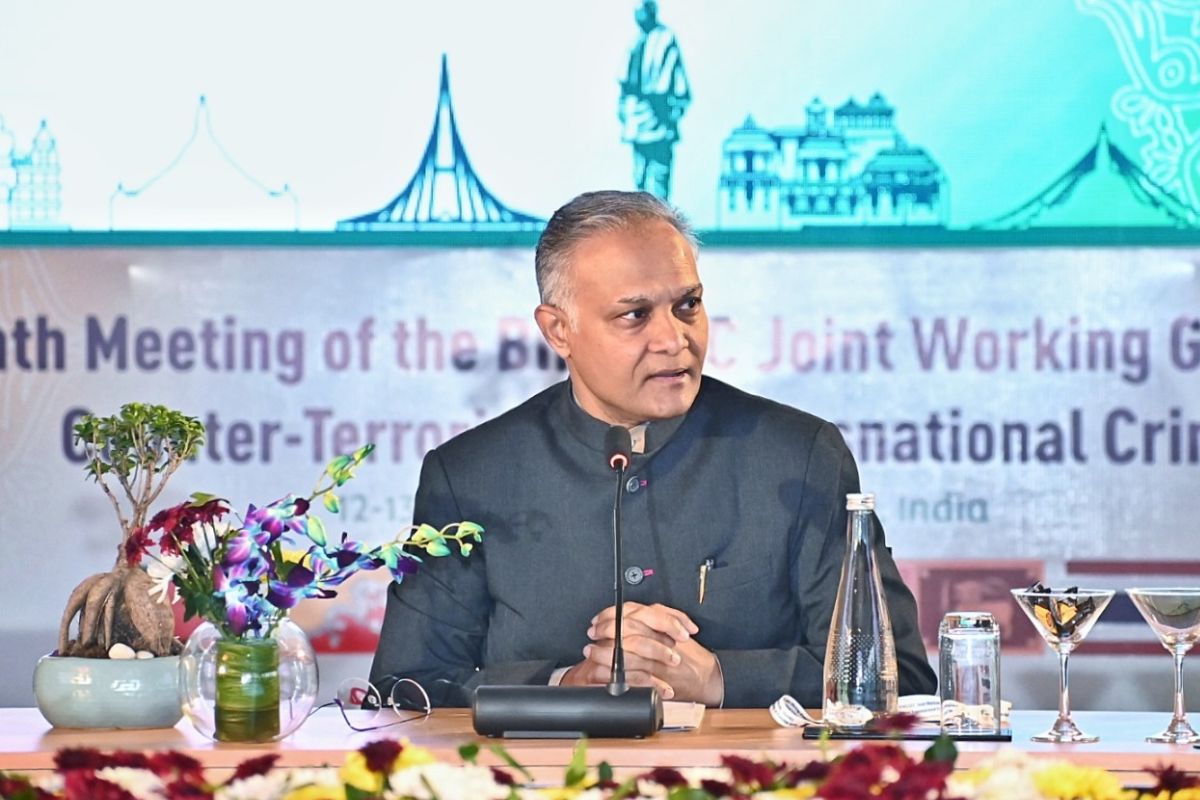In a veiled attack on Pakistan, India today expressed concern that some countries, their governments and their agencies have made terrorism their state policy.
”State-sponsored terror from our western borders routines uses Unmanned Aerial Systems, for cross-border trafficking of drugs and arms and for carrying out terrorist attacks – a classic example of the synergy between terrorism and transnational crime,” Sanjay Verma, Secretary (West) in the External Affairs Ministry said while addressing the tenth meeting of the BIMSTEC Joint Working Group on Counter Terrorism and Transnational Crimes (JWG-CTTC).
Advertisement
He said India’s critical infrastructure was also witnessing growing and repeated cyber attacks by malicious state actors. All these nefarious activities directly compromise a state’s collective security and prosperity, he added.
Describing terrorism as the worst violation of human rights and personal freedoms, Verma said terrorism and transnational crime remain one of the foremost challenges to regional peace and prosperity.
”No state is immune to acts of terrorism, many of which are encouraged and sponsored beyond the borders of the affected state. Transnational crimes take the face of trafficking in humans, arms, drugs, minerals, wildlife, counterfeit goods, or even fraud and extortion, money laundering and cybercrime. Often, forces of terror and transnational crime combine, embracing advances in technology before others,” he added.
The Indian diplomat asserted that India was committed to fighting the scourge of terrorism in all its forms. he quoted Prime Minister Narendra Modi to say: “we consider that even a single attack is one too many, and even a single life lost is one too many, So, we will not rest till terrorism is uprooted.”.
India, Verma said, has established a policy of ‘Zero Tolerance’ against terrorism, through a strong framework of counter-terror laws and empowerment of agencies. ”We are committed to the common fight against global terrorism, including through combating the financing of terrorism, intelligence sharing and cooperating in investigative and judicial processes, capacity building and preventing misuse of modern technologies by terrorists and transnational crime syndicates.”
The Indian diplomat was of the view that in order to counter the menace of terrorism and transnational crime, the BIMSTEC countries need to work holistically on the following six-point agenda:
–We need to fix the accountability on States which support, shelter and sponsor terrorist entities and transnational crime syndicates. We must isolate such states through our collective resolve;
–We need to build resilience through capacity building, transparent information exchange and law enforcement collaboration;
–We need to cooperate, both in the physical and virtual world where the infrastructure used by terror entities and transnational crime syndicates is scattered and traditional tools have limited efficacy;
–We need to counter the misuse of new and emerging technologies by terrorists and transnational crime syndicates. The UNSC Counter-Terrorism Committee’s Delhi Declaration issued in October 2022 could be our guiding inspiration in this context;
–We need to have a contemporary comprehensive result oriented approach to counter radicalisation; and
— We need to proscribe terror entities objectively and without double standards.











